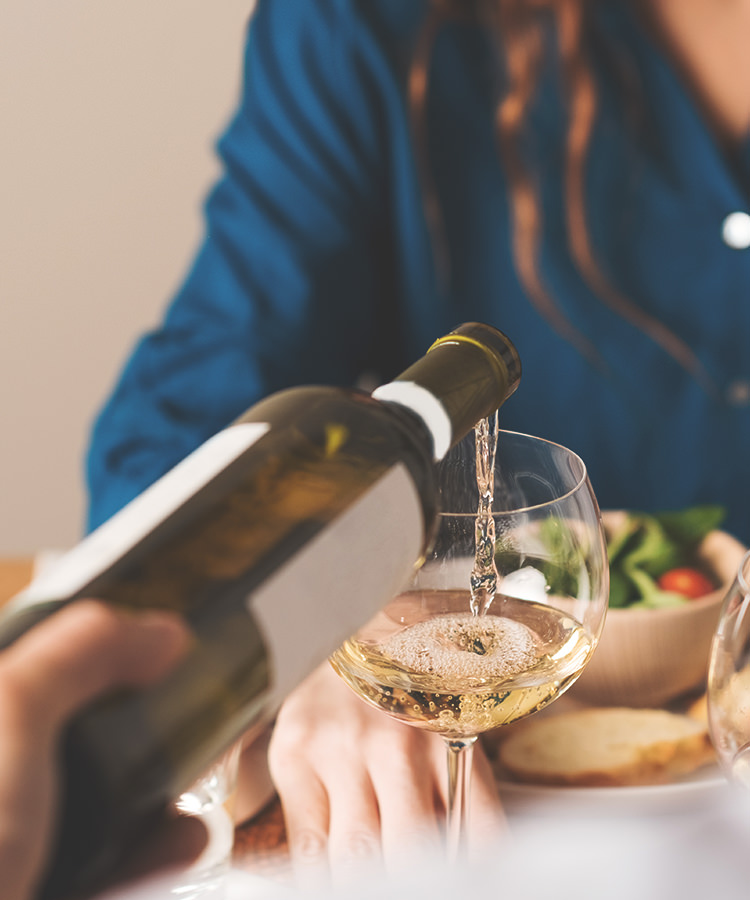
When it comes to ordering a refreshing glass of white, Sauvignon Blanc is the go-to choice for many wine drinkers. And rightfully so — the wine is crisp, refreshing, and super easy to drink. Its high acid and broad range of flavors make the wine extremely versatile in food and wine pairings and, best of all, it’s generally pretty affordable.
Many wine drinkers love an ice cold glass of SB, though don’t actually know much about the noble grape variety. We’ve taken eight of the most common questions about Sauvignon Blanc that you’ve always wanted to ask and broken them down for all of you faithful white wine drinkers.
What is Sauvignon Blanc?
Sauvignon Blanc is a white wine grape variety that is grown all over the world. Its name most likely comes from the words for ‘wild’ (sauvage) and ‘white’ (blanc) in French. Sauvignon Blanc is the eighth most-planted grape variety worldwide.
What does Sauvignon Blanc look like?
Sauvignon Blanc is a green-skinned grape variety that is used for white wine production. When ripe, the grapes are round in shape and hang in small, compact clusters. The variety buds late and ripens early, making it a perfect match for sunny regions.
Where is Sauvignon Blanc from?
Sauvignon Blanc originally hails from the Bordeaux region of France. In the 1700s, Sauvignon Blanc was crossed with Cabernet Franc to produce the Cabernet Sauvignon grape.
Where does Sauvignon Blanc grow?
Sauvignon Blanc grows in various wine-producing regions all over the world. Regions with large amounts of Sauvignon Blanc plantings include Bordeaux and the Loire Valley in France, the South Island of New Zealand, the Margaret River region of Australia, California, and Chile.
Are Sauvignon Blanc and Sancerre the same thing?
No. Sauvignon Blanc is a grape variety and Sancerre is an appellation in the Loire Valley. However, according to AOC regulations, a white wine from Sancerre must only be produced from 100 percent Sauvignon Blanc. For red wines to be labeled as Sancerre, they must be 100 percent Pinot Noir.
What does Sauvignon Blanc taste like?
Sauvignon Blanc has a broad spectrum of taste profiles, depending on the region from which it comes. For example, Sauvignon Blanc from Old World regions (Bordeaux, Loire Valley) will tend to be more mineral-driven and flinty, whereas Sauvignon Blanc from New World regions (New Zealand, Australia, California) will tend to have more grassy, tropical fruit flavors.
Why does Sauvignon Blanc sometimes smell like grass?
“Grassiness” in wine comes from compounds in grapes called aldehydes, which are more prominent in some grape varieties than others, with Sauvignon Blanc being one of them.
How much does Sauvignon Blanc cost?
The price of Sauvignon Blanc ranges all over the spectrum, from inexpensive bottles going for less than $10 a pop, to more refined examples (such as Sancerre) ranging from $25 to $50, to the insanely luxurious dessert wines of Chateau d’Yquem (in which Sauvignon Blanc plays a backup role to fellow white grape variety, Sémillon) going for tens of thousands of dollars per bottle!
